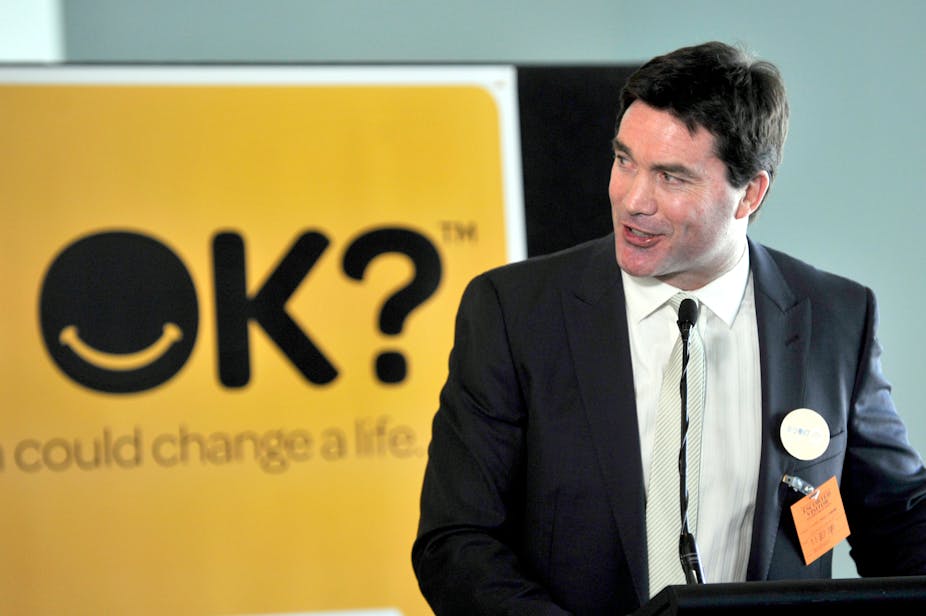Today is R U OK? Day – an initiative kicked off in 2009 by marketing executive Gavin Larkin and television producer Janina Nearn after the death of business management consultant Barry Larkin who took his own life in 1995.
The organisers say the day is about encouraging Australians to “stop little problems becoming bigger by asking someone ‘Are you ok?’” Last year an estimated 13 million Australians took part.
But this year the day comes amid a debate about how the media should report suicide, with support agencies such as Lifeline dealing with increasing calls and stretched resources.
On Monday the ABC’s 730 program revealed thousands of calls to Lifeline go unanswered because the service is so badly under-resourced.
The media often refer to Lifeline in stories discussing suicide, listing the number of the help service, the largest of its kind in Australia, at the end.
Last month the Australian Press Council released its first guidelines for reporting on the issue of suicide, which Press Council chairman Julian Disney argued has been a taboo subject for Australian media for too long. The new guidelines, which still ask for considered and sensitive reporting of individual deaths by suicide, kicked off a debate about the level of reporting on suicide.
“My personal view is that measured and responsible reporting of these issues is a good thing,” said Brian Draper, Conjoint Professor of Psychiatry at University of New South Wales.
“When responsible journalism deals with any of these sorts of issues it’s got potential to be informative and help the public in a better understanding of the complexity of what’s going on,” Professor Draper said.
But with more media reporting of suicide, and days of action like R U OK? Day, comes greater demand on support agencies.
“In general services for mental health have limited resources and any situation that provides the public an awareness and a desire to get extra help will challenge those resources,” Professor Draper said.
“That goes for non-government organisations like Lifeline or even private therapists.”
But despite the challenge, Lifeline media and government relations manager John Mendel said it’s important society develops a help-seeking mentality.
“The media is becoming better at, whenever there’s a story with a degree of sensitivity, quoting Lifeline at the end of the article.”
Mr Mendel acknowledged there are more pressures being placed on Lifeline, with call numbers expected to grow from 500,000 last year to 600,000 this year.
But he said the 730 report on the agency’s challenges listed call abandonment rates (at almost four out of ten calls), without explaining why that was the case.
“When people call 13 11 14 quite often they’re calling to find out about volunteering or donating and during that (initial) greeting the dropouts occur.
They’re given a message about what they can do and they hang up and take out those other avenues.”
Mr Mendel said while long wait times were totally unacceptable, the message to get out was that if people did wait they would eventually get through to someone at Lifeline.
He added that the problem of suicide taboo made it more difficult for Lifeline to attract much-needed funding from the corporate sector.
“In the corporate sense there’s still this taboo about suicide. You need a level of bravery for them to get involved.”
Me Mendel said resourcing was a never-ending struggle for Lifeline and the group would probably never be at a point where it was satisfied.
“We need to get more support from government, both Federal and State…and we definitely need more corporates to put their hand up.”
Professor Draper said one of the challenges of providing quality services in this field is to create a service structure that has the potential to be as responsive as the public needs but in a way the public can afford.
“As a society we have to ask how much do we want to pay to respond quicker. This is a challenge for politicians and the public.”


